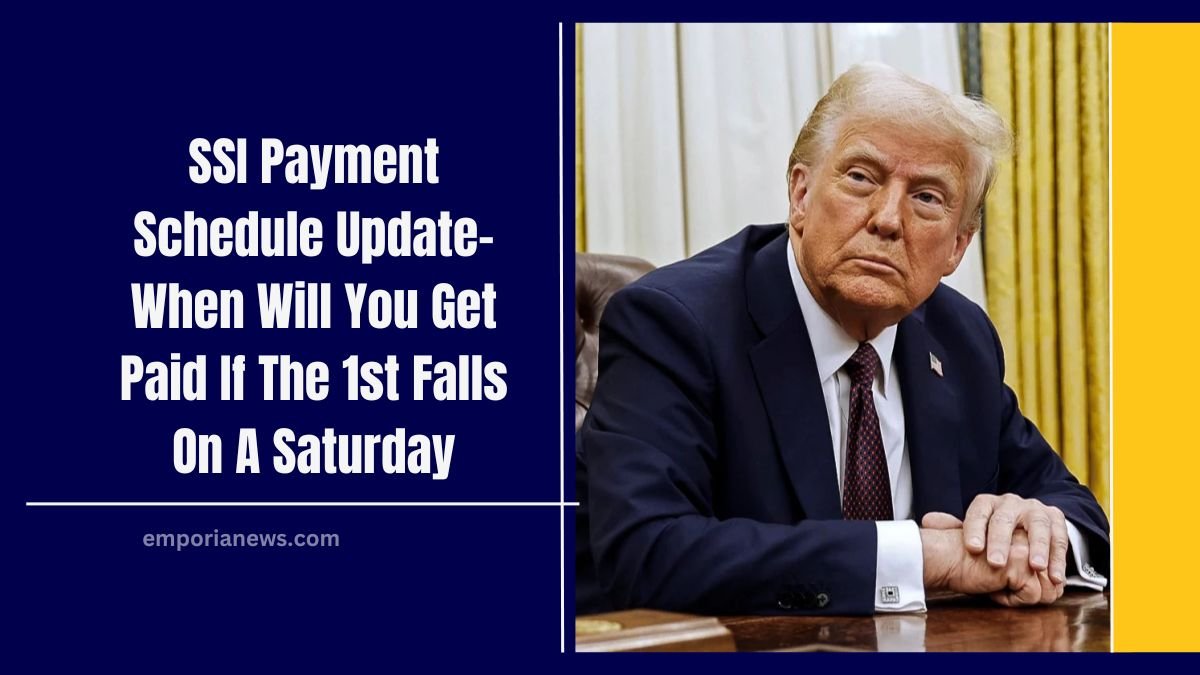The Supplemental Security Income (SSI) program, administered by the Social Security Administration (SSA), provides financial assistance to individuals with limited income who are aged, blind, or disabled. Typically, SSI payments are disbursed on the first day of each month.
However, when the 1st of the month falls on a Saturday, the payment schedule is adjusted to ensure beneficiaries receive their funds without delay.
Payment Schedule Adjustments
When the first day of the month lands on a Saturday, the SSA issues SSI payments on the preceding Friday.
This adjustment ensures that beneficiaries have access to their funds before the weekend, preventing any potential financial inconvenience.
Example:
- If the 1st of February is a Saturday, the SSI payment will be deposited on Friday, January 31st.
General SSI Payment Schedule:
| Month | 1st Falls On | Payment Date |
|---|---|---|
| January | Monday | January 1 |
| February | Saturday | January 31 (Friday) |
| March | Friday | March 1 |
| April | Monday | April 1 |
| May | Wednesday | May 1 |
| June | Saturday | May 31 (Friday) |
| July | Monday | July 1 |
| August | Thursday | August 1 |
| September | Sunday | August 31 (Friday) |
| October | Tuesday | October 1 |
| November | Friday | November 1 |
| December | Sunday | November 30 (Friday) |
Note: When the 1st falls on a Sunday, payments are also made on the preceding Friday.
Key Considerations:
- Weekend and Holiday Adjustments: If the 1st of the month falls on a weekend or federal holiday, the payment is made on the last business day before the 1st.
- Double Payments in a Month: Due to these adjustments, there are instances where beneficiaries receive two payments in one month. For example, if December 1st is a Sunday, the payment for December is made on November 29th (Friday), resulting in two payments in November and none in December.
Impact on Beneficiaries:
Receiving two payments in a single month can affect budgeting for beneficiaries. It’s essential to recognize that the second payment is an advance for the upcoming month, not an extra payment. Beneficiaries should plan accordingly to ensure financial stability throughout the month without a scheduled payment.
Understanding the SSI payment schedule, especially when the 1st of the month falls on a Saturday, is crucial for effective financial planning.
The SSA’s adjustments aim to ensure beneficiaries receive their payments promptly, preventing any delays due to weekends or holidays.
By staying informed about these scheduling nuances, recipients can manage their finances more effectively and avoid potential budgeting challenges.
FAQs
Why did I receive two SSI payments in one month?
When the 1st of a month falls on a weekend or federal holiday, the SSA issues the payment on the last business day before the 1st. This can result in receiving two payments in one month, with the second payment serving as an advance for the upcoming month.
Will receiving two payments in one month affect my eligibility or benefits?
No, receiving two payments in one month due to scheduling adjustments does not affect your eligibility or the total amount of benefits you receive. It’s simply a timing adjustment to ensure timely payment.
How can I keep track of my SSI payment schedule?
The SSA provides an annual payment schedule on their official website. Additionally, you can create a “my Social Security” account to monitor your benefits and payment dates.




